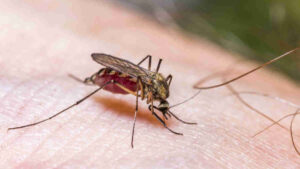An insidious animal-borne virus is sweeping the world and affecting hundreds and millions of people, causing widespread mortalities and a range of nasty symptoms (or, in many cases, none at all).
No – we’re not talking about THAT virus. In fact, we’re referring to dengue fever, the mosquito borne pestilence that is spreading from tropical countries – typical poor ones – to locations such as Florida, northern Queensland and the Mediterranean.
According to figures cited by the recently-listed Island Pharmaceuticals (ASX:ILA), dengue fever affects 390 million people, with a further three billion – 40 per cent of the planet’s populace – deemed to be at risk.
The symptoms include the A-Z of nasties: vomiting, diarrhoea, headaches, seizures, itching, “pleural effusion” and even “altered minds”.
There’s no cure and, unlike the coronavirus, there’s only limited protection with vaccines.
Enter Island, which is seeking to remedy this rum situation with a treatment based on a repurposed cancer drug.
“Dengue fever is the very definition of an unmet medical need,” the company says.
When it comes to such drug reinvention, Island is in lofty company, with the ASX-listed Race Oncology, Paradigm Biopharmaceuticals and Pharmaust also pursuing the ‘everything old is new again’ approach.
Isle be blowed: are they on to something?
Island’s story revolves around its compound ISLA-101, which previously was first identified by Johnson & Johnson as a potential cancer treatment.
(Isla is Spanish for island, by the way).
J&J eventually tired of the program and donated the rights to the National Cancer Institute in the US.
Pre-clinical work at our very own Monash University then elevated the molecule’s potential to an animal or human anti-viral drug.
The company itself listed on April 13, having been founded by medical entrepreneur Dr William James Garner.
Based in Puerto Rico, Dr Garner had set up no fewer than 10 biotechs on both sides of the Pacific. Here, he founded Invion in 2012 and was the company’s CEO. He is a former director of fellow drug repurposer Race Oncology.
Other gigs include heading EGB Ventures LLC (which he founded) and head of medical affairs at Roche Holding AG. He received a graduate degree from Harvard University and a doctorate from New York Medical College.
Dr Garner – who should not be confused with Kazia Therapeutics CEO Dr James Garner – remains a 26 per cent shareholder of Island.
CEO Dr Foster co-founded the tech-oriented law firm Roberts Foster LLP, as well as multiple private biotech companies.
Chair Paul MacLeman needs no introduction for local biotech devotees, as he is also chairman of Adalta. Previously he was CEO of Genetic Technologies and IDT Australia.
We’re not too fussed about advisory boards, but in this case, we should mention that Island’s greybeards include Prof Stephen Thomas, the lead principal investigator for the Pfizer/Biontech Covid vaccine trial.
Nailed it!
Residing in the tropics, Dr Garner realised there was a growing problem with mosquito-borne viruses and stumbled on the work of Monash University biochemist Prof David Jans.
Dr Foster says drug repurposing usually starts with the “hammer” – the compound – and then the “nail” (an indication).
But Prof Jans flipped this approach by starting with the problem and then identifying the solution.
“This wasn’t a case of throwing drugs against a wall and seeing what sticks,” Dr Foster says.
“Professor Jans started with a biological target in mind and screened drugs against that target.”
Along the convoluted journey, ISLA-101 has undergone no fewer than 45 phase I and II clinical trials for cancer, in Europe and five other countries.
The least that can be said about the compound is that it’s as safe as houses – maybe not the safest metaphor given our dangerously frothy property market.
News from the lab
The normal sneaky work of a virus involves penetrating a cell, replicating itself and then sending the multiple viruses out into the body.
The mechanism of action of ISLA-101 is to inhibit the nuclear uptake (propagation) of flaviviruses that include dengue fever, West Nile fever, Zika, Chikungunya virus (pronounced “chicken-GUN-yay”) and yellow fever.
Malaria, a persistent global health problem, is parasitic and not a virus.
In-vitro models using fresh human cells identified “broad based anti-viral activity” resulting from the compound.
This was followed up by “extremely lethal” animal models that prevented deaths in 70 per cent of subjects.
Island’s plans revolve around a phase II trial, which will recruit 16 people across four cohorts of differently-dosed, healthy 18 to 45-year-olds.
The trial will assess the prophylactic effect of the orally administered compound when the subjects are “challenged” with fragments of the virus.
In other words, the trial participants are deliberately injected with a mild dose of the pathogen.
The US military – saving lives since 1943
Normally such a methodology would ring alarm bells, but Island is conferred an advantage thanks to the work of the US military and the Walter Reed National Military Medical Centre.
The reason is that in the Pacific theatre during World War Two, the US army lost more soldiers to mosquito-borne viruses than Japanese bullets.
In their quest for a vaccine, the medicos took to ‘challenging’ volunteers with attenuated (weakened) strains of the dengue virus and the malaria pathogen.
We’re not sure whether ‘volunteering’ in this context means ‘you have been volunteered’, but we digress.
While a vaccine never eventuated, the military built a huge patient database and the work continues.
“Walter Reed is running trials with healthy individuals, but no drug on board,” Dr MacLeman says.
“We will do the drug. It will be a prophylactic study: pre-treat the individual with our drug and then infect them and see if we can reduce infection.”
In effect, the US military provides the control group, free of charge.
Dr MacLeman adds the FDA offered some “minor commentary” about the trial methodology but was otherwise cool with it.
“Normally if you pulled a virus out of the air and say ‘I want it done with healthy volunteers’ you would have a hard time,” he says. “But [dengue fever] has been done so many times by the army that the powers that be are familiar with it.”
Financials and performance
Given Island is such a young company with no revenue or development, this section should really be titled ‘nothing to see here, move on’.
In the year to June 2020 – the most recently available numbers – the company burnt a modest $234,000.
The initial public offer garnered $7.5 million at 25 cents apiece and was “significantly oversubscribed”. This was reflected in the shares soaring to as high as 67 per cent on debut, with 13 per cent of the register changing hands.
The commercial potential of ISLA-101 is reflected in the hospitalisation cost of treating dengue fever patients: US$7,040 ($9,100) in the US.
As a rough guide to the revenue potential, the company cites forecasts of a $US1 billion a year market for anti-malarial drugs by 2026. We stress that Island is not pursuing a malaria treatment.
Island also mentions the prospect of winning a Priority Review Voucher (PRV) from the US Food and Drug Administration, under the agency’s tropical diseases program.
A PRV is a fungible ‘Willy Wonka’ ticket that is typically on-sold to a big pharma company and has changed hands for an average $US110 million.
Island Pharmaceuticals share price today:
Expanding the repertoire
Dr MacLeman says Island might expand its repertoire to other ailments, including respiratory syncytial virus (RSV), a cold-like condition that can be troublesome with kids and older people.
But the program is a mere twinkle in the company’s eye at this stage.
And did someone mention ‘respiratory’? We’re somewhat relieved to report that Island is not another Covid-busting story.
“That ship has sailed,” Dr MacLeman says.
“We might look at it down the track because this won’t be the last epidemic or pandemic, there will be others.”
We have been warned.
Dr Boreham’s diagnosis:
John Donne penned that “no man is an island, entire of itself” and the company is likely seek partnering deals if its trials progress.
In the short term, investors should watch out for boring-but-important stuff such as good manufacturing practice certification, the filing of an investigational new drug application with the FDA and, of course, the first patient into the phase II trial.
Ideally, ISLA-101 will emerge as a “platform in a pill”: in other words, it will also be effective against all the aforementioned mosquito-borne viruses.
Dr MacLeman posits that if the company gets a “sniff of efficacy” out of the trial, the company could become an attractive takeover target.
Now valued at $500 million and $460 million respectively, Paradigm and Race had a “profound value inflexion” at the phase II stage.
The optimist’s take on Island is that it is laser-focused on its drug candidate of choice and leveraging off the development work that has already taken place.
The more cautious view is that there’s no plan B if ISLA-101 flops.
Given the company’s sub $20 million valuation, Island is a value bet on a cure for one of the world’s most insidious emerging diseases.
Partnerships and even a takeover beckon if the trial lives up to its promise.
In the meantime, Island must forge its own fortunes.
As Dolly Parton and the late Kenny Rogers crooned in Islands in the Stream, “this is what we are/no-one in between/how can we go wrong?”
Disclosure: Dr Boreham is not a qualified medical practitioner and does not possess a doctorate of any sort. Your columnist’s efforts to find a nail with a hammer usually ends up with audible obscenities.
This column first appeared in Biotech Daily
You might be interested in











